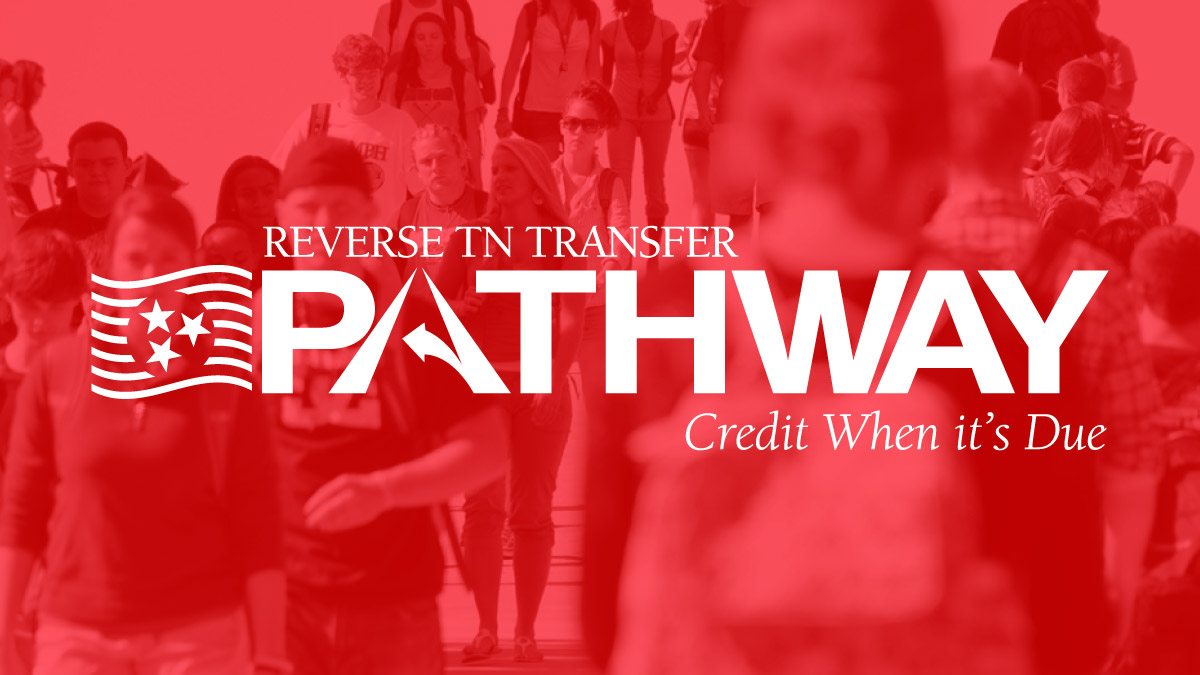
NASHVILLE—Students who transferred from a Tennessee community college to pursue a bachelor’s degree may be eligible to retroactively receive the associate degree they started through the state’s new reverse transfer program.
More than 7,500 students currently enrolled at participating public and private four-year schools across the state were notified in August of their potential eligibility and invited to sign up by Sept. 12 for a free degree audit. About 23 percent or 1,755 opted in this semester and will be told in December if the courses they’ve completed meet graduation requirements for a two-year degree.
“If there’s a degree I’ve earned at some point in this journey, I want it on my resume,” said Laurie Wyatt, a University of Tennessee, Knoxville student and 38-year-old mother of three.
Wyatt said she didn’t understand the value of an education at age 18 and squandered the opportunity. She enrolled at Walters State Community College in summer 2012 to complete some basic courses before transferring to UT Knoxville to study anthropology.
“If Walters State and UT agree I’ve put in enough work to amount to an associate degree, I want it,” she said. “It won’t stop me from finishing my bachelor’s degree, but I’ve worked hard and want every credit to count. I deserve it.”
Tennessee Reverse Transfer is a unique partnership involving the state’s public and private higher education systems and investments totaling almost $700,000 from the state and Lumina Foundation, an Indianapolis-based independent, private foundation committed to increasing the proportion of Americans with high-quality degrees, certificates and other credentials.
The program also signifies a shared commitment to helping more Tennesseans earn college degrees and aligns with the state’s Drive to 55 initiative. Currently, only 33 percent of Tennesseans have certificates or degrees beyond high school, and studies show that by 2025, that number must be 55 percent to meet workforce demands.
Reverse Transfer rolled out across the state during the spring 2015 semester at 14 participating two- and four-year schools. Even in partial implementation, 341 reverse transfer degrees were awarded in June.
Fourteen more colleges and universities came on board in August. To date, 28 schools are participating in the program—making Tennessee one of a handful of states in the country creating reverse transfer programs on this scale.
Eligible transfer students are identified and notified each semester. Students who opt in but do not meet requirements are told the courses they lack and contacted again the next semester.
Criteria for eligibility:
- Currently enrolled at a participating public or private four-year Tennessee school
- Have earned a minimum of 15 college-level credits from a Tennessee community college
- Transferred from a Tennessee community college before earning an associate degree
- Completed a combined total of 60 college-level credits post-transfer
An associate degree is seen as a valuable job-seeking credential for undergraduate students working their way through college.
Cassandra Titus agrees and opted in early to find out if she’s eligible.
“I need to show proof of experience or education in order to advance, and I feel like having this degree will show them I’m serious about my career,” she said. “I’ve worked in administrative assistant roles for almost 10 years and need a degree to advance.”
Titus transferred to Tennessee State University from Nashville State Community College in May 2014 to pursue a bachelor’s degree in accounting. She hopes to get her foot in the door with her current employer’s accounting department before she graduates in December 2016.
Students’ motivations for opting in differ, and Jessica Smith said she didn’t fully understand the program when she signed up.
“But I did it anyway,” said the Summertown, Tennessee, native studying biology at Freed-Hardeman University. Smith plans to attend medical school and has a clear vision for how she’ll get there. Her advice to anyone else who may be eligible, “Having a degree while you’re working on another degree can certainly open up more possibilities—so, why not?”
Four-Year Schools Currently Participating; Student Participation in Fall 2015
University of Tennessee System
- UT Chattanooga (606 potentially eligible students, 149 opted in)
- UT Knoxville (872 potentially eligible students, 228 opted in)
- UT Martin (150 potentially eligible students, 44 opted in)
Tennessee Board of Regents Universities
- Austin Peay State University (283 potentially eligible students, 73 opted in)
- East Tennessee State University (797 potentially eligible students, 190 opted in)
- Middle Tennessee State University (1,617 potentially eligible students, 326 opted in)
- Tennessee State University (439 potentially eligible students, 68 opted in)
- Tennessee Tech University (695 potentially eligible students, 151 opted in)
- University of Memphis (1,490 potentially eligible students, 367 opted in)
Tennessee Independent Colleges and Universities Association
- Carson-Newman University (134 potentially eligible students, 25 opted in)
- Freed-Hardeman University (58 potentially eligible students, 8 opted in)
- Lipscomb University (129 potentially eligible students, 37 opted in)
- Maryville College (25 potentially eligible students, 5 opted in)
- Memphis College of Art (4 potentially eligible students, 2 opted in)
- Tusculum College (214 potentially eligible students, 83 opted in)
Community Colleges Currently Participating:
- Chattanooga State Community College
- Cleveland State Community College
- Columbia State Community College
- Dyersburg State Community College
- Jackson State Community College
- Motlow State Community College
- Nashville State Community College
- Northeast State Community College
- Pellissippi State Community College
- Roane State Community College
- Southwest Tennessee Community College
- Vol State Community College
- Walters State Community College
More information about the program is available at www.tnreversetransfer.org, and questions can be directed to ask@tnreversetransfer.org.
Contacts
Gina Staffordstafford@tennessee.edu
(865) 974-0741
Ellie Amador
amador@tennessee.edu
(865) 974-1177
